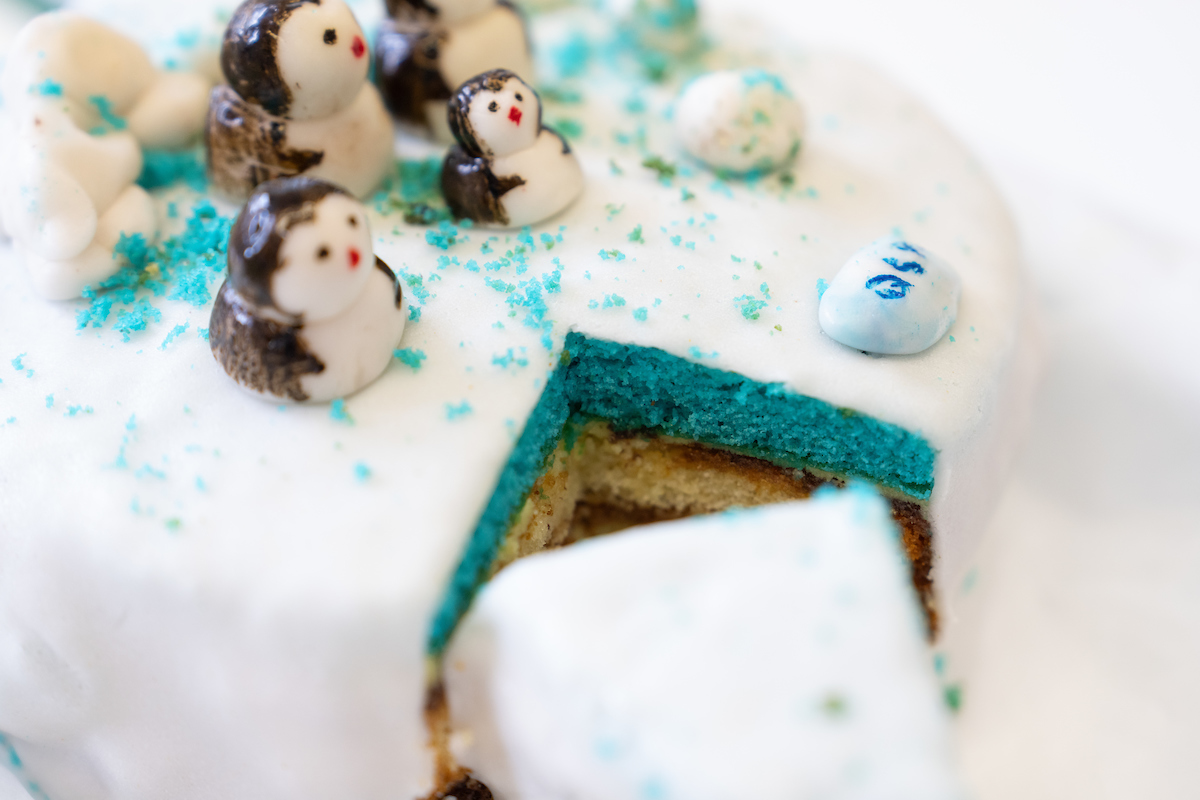
Bake Your PhD: the sweetest side of Earth Science

Explaining complex scientific research is no piece of cake – unless you’re in the Bake Your PhD competition at the ANU Research School of Earth Sciences.
As part of this beloved annual tradition, PhD students are challenged to represent their Earth science research in the form of baked goods and present them to a judging panel.
The judges – including ANU Vice-Chancellor Professor Genevieve Bell, Dean of Students Associate Professor Jenni Bettman, and Dean of the College of Science and Medicine Professor Kiaran Kirk – considered the look and taste of the bake, as well as how the research was communicated.
“This is a fun way to represent your research among students, because when you present it with just the graphs, it is quite boring for some people,” said participant Ammu Sanjayan.
“But if you present it in the form of something that is delicious, that will feel more interesting.”
Sanjayan’s cake was anything but boring, displaying small frosting penguins atop a cake that represented the Antarctic region that she studies. Cutting into the cake revealed layered chocolate and vanilla cakes to show the multiple layers of polar ice and sediment that Sanjayan measures using seismic waves.
Baking has many parallels with science: both require excellent problem solving, technical skill and creativity.
For another participant, Edgar Leong, the biggest hurdle was bringing a new creative approach to his cake, after winning the Bake Your PhD competition last year.
This time he chose to depict an abstract representation of hydrothermal veins in rock, by drizzling melted marshmallow over a black sesame cake.
“I work on these structures called sedimentary basins, and it’s a weird and wonderful world down there,” Leong explained.
“It gets really hot and it heats up fluids, and when they bust through the rocks they tend to precipitate quartz and calcite veins, like what I’ve tried to represent here,” he said pointing to his colourful cake.
But the 2024 overall Bake Your PhD winner was Rosmalia Nugraheni for her blue celestine geode cake that represented a paper she’s been working on.
Nugraheni incorporated rock sugar clumps inside her cake, dyed blue, to represent the celestine crystals within the geode.
“The celestine mineral is something common in petrology,” Nugraheni said.
“Probably the most challenging part was to get the delicate blue colour, because when I first dropped the food colouring on the rock sugar, it gave me a deep blue colour instead of the delicate blue.”
That dedication that Nugraheni showed to the bake was the icing on the cake for the judges.
“The reason you are winning this is because that cake was aesthetically beautiful. It represented your research,” the judges said at the event.
“You found a way to make individual crystalline structures. It tasted good. And the story you told about it showed a dedication to what you’re working on and to make it true in cake in a way that is absolutely commendable.”
This article was first published by ANU Reporter.



